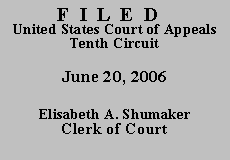

| UNITED STATES OF AMERICA,
Plaintiff-Appellee, v. SHAWN L. DIGHERA, Defendant-Appellant. |
|
Under Hahn, we consider "(1) whether the disputed appeal falls within the scope of the waiver of appellate rights; (2) whether the defendant knowingly and voluntarily waived his appellate rights; and (3) whether enforcing the waiver would result in a miscarriage of justice." Id. at 1325. The miscarriage-of-justice prong requires the defendant to show (a) his sentence relied on an impermissible factor such as race; (b) ineffective assistance of counsel in connection with the negotiation of the appeal waiver rendered the waiver invalid; (c) his sentence exceeded the statutory maximum; or (d) his appeal waiver is otherwise unlawful. Id. at 1327. The government's motion addresses all of these considerations, explaining why none of them undermine defendant's appeal waiver. Upon review of the pertinent plea and sentencing materials, we agree.
The only argument advanced in defendant's opposition to the government's motion relates to the first prong of the Hahn test. Defendant seeks to challenge the district court's specification of his base offense level on the ground that the court failed to properly calculate the relevant quantity of methamphetamine involved. He contends, without supporting authority or reasoned argument, that his appeal waiver does not encompass "his right to appeal the issue of whether the guideline range was properly determined by the court." Response to Motion for Enforcement of Plea Agreement at 2. To the contrary, this issue not only falls within the broad scope of his catch-all waiver of "any matter in connection with . . . [his] sentence," it falls squarely within the specific waiver with respect to any "sentence imposed . . . within the guideline range determined appropriate by the court." Plea Agreement at 9, 10 (emphasis added). The emphasized language makes it clear that the court's determination of the appropriate guideline range sets the bounds of the waiver (permitting appeal only "to the extent, if any, the court departs upward from the applicable sentencing guideline range determined by the court," id. at 10) and is not itself subject to challenge. Defendant, in effect, seeks to delete this straightforward and obviously significant provision from the parties' agreement.
Turning to the second part of the Hahn test, the government contends that there is no grounds to doubt the knowing and voluntary nature of defendant's plea and associated appeal waiver, and defendant has not disputed the point. We have reviewed the primary record sources relating to the issue the language of the plea agreement and the Rule 11 colloquy at the plea hearing, see Hahn, 359 F.3d at 1325 and agree that they do not reflect any deficiencies that would invalidate the waiver.
Finally, we see no basis on which to find a miscarriage of justice. There is nothing in the record, and nothing noted by defendant outside the record, to indicate that an impermissible sentencing factor was involved, the sentence was within the statutory maximum, and there is no suggestion that counsel was ineffective in any way with respect to his plea. The only remaining basis for finding a miscarriage of justice, i.e., that the waiver is "otherwise unlawful," requires the demonstration of an error that "seriously affect[ed] the fairness, integrity, or public reputation of judicial proceedings." Hahn, 359 F.3d at 1329 (citing United States v. Olano, 507 U.S. 725, 732 (1993)). No potential error of that magnitude is evident here. As noted, the nuts-and-bolts sentencing issue to be raised on appeal falls squarely within the scope of those matters defendant deliberately waived in exchange for the substantial benefits of the plea agreement, including the avoidance of a career criminal prosecution. Concerns of fairness, integrity, and public reputation favor enforcement of the waiver.
The government's motion to enforce the appeal waiver in defendant's plea agreement is GRANTED and the appeal is DISMISSED. The mandate shall issue forthwith.
ENTERED FOR THE COURT
PER CURIAM
*. This panel has determined unanimously that oral argument would not materially assist the determination of this appeal. See Fed. R. App. P. 34(a)(2); 10th Cir. R. 34.1(G). The case is therefore ordered submitted without oral argument. This order and judgment is not binding precedent, except under the doctrines of law of the case, res judicata, and collateral estoppel. The court generally disfavors the citation of orders and judgments; nevertheless, an order and judgment may be cited under the terms and conditions of 10th Cir. R. 36.3.